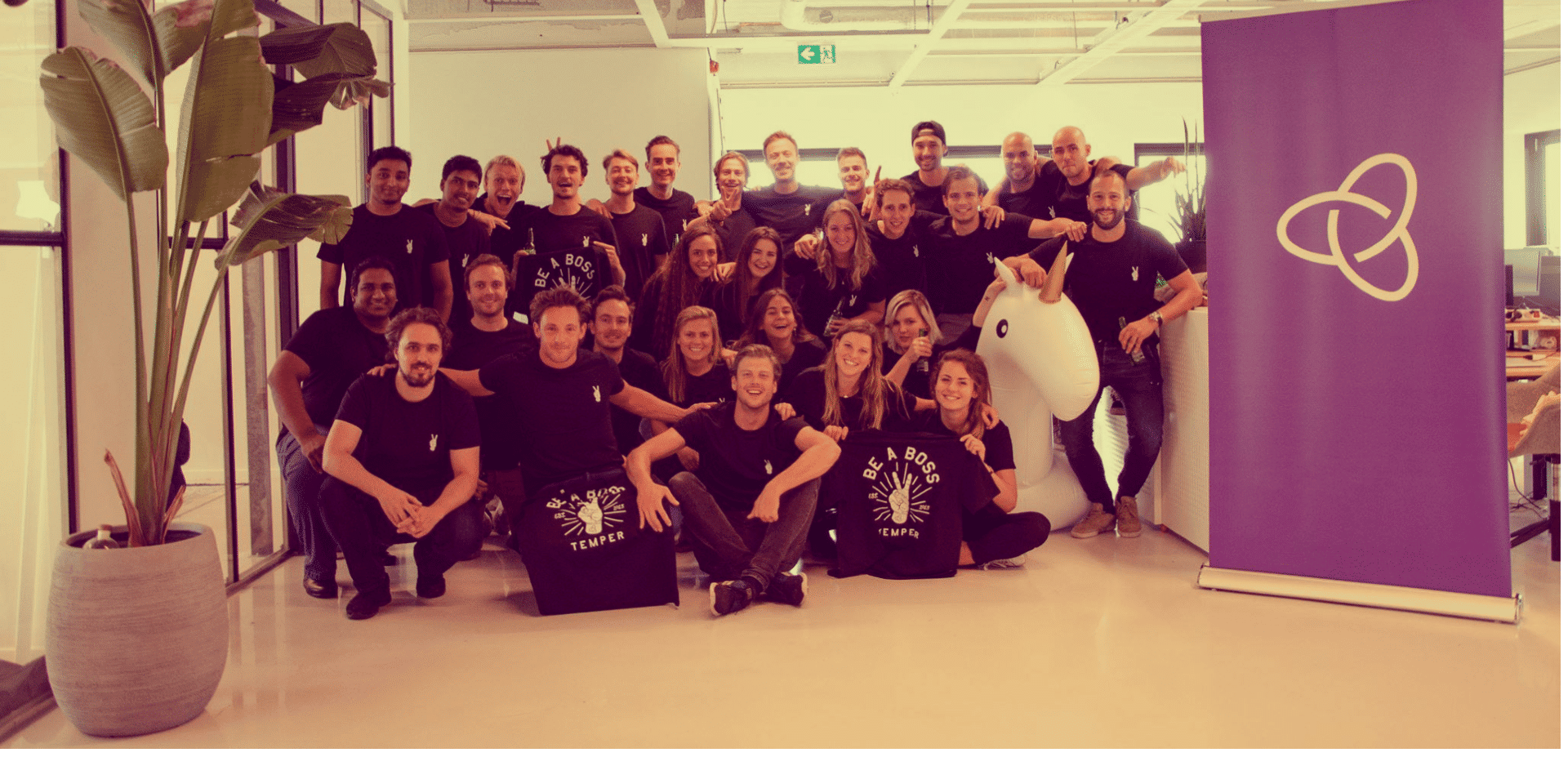Interview temper’s cto on how to operate a successful remote development team

We had the pleasure to chat with Jeroen Jochems, CTO of Temper, who shared his experience on managing remote developers. Temper is a digital marketplace connecting freelance professionals to companies within the hospitality sector.
Founded in 2015, Temper has witnessed a spectacular growth in a short span of time. Temper is used by over 50,000 freelancers and over 2,500 clients. On average, over 3,000 new jobs are placed every week.

Jeroen Jochems
CTO, Temper
Q: First of all congratulations to Temper, which has been growing immensely in the last few years. How have scaling-up efforts been and what steps have you taken?
Jeroen: I’m very proud of our achievements and the trust people have in our system. This offers great opportunities, but also some challenges. Amsterdam is now the 5th most popular destination for tech founders. This has made finding and attracting the right talent challenging. Particularly when you want to scale-up or develop a product within a short period of time.
To hire the right people, first I reviewed the required skill set to execute our scale-up efforts. It quickly became clear we couldn’t limit ourselves to local talent since this would take a lot of time and extend our budgets.
That is why we partnered with Gapstars to develop a tech team in Sri Lanka. There, we were able to find the right people much faster. Gapstars took care of finding, hiring and facilitating developers in scrum team format. This saved us a lot of time and money, helping us scale our business rapidly.

Temper’s growing development team in Sri Lanka
Q: Could you tell us a little more about the hiring process when working with Gapstars, and how that has turned out?
Jeroen: Firstly, we identify business requirements. We then inform Gapstars about our requirements and they source for the right talent. They share the profiles of candidates, who are then screened by our tech lead in Sri Lanka.
Next are a variety of interview rounds, from code samples, test tasks to live coding sessions. This ends up in a shortlist of the right people for the job.
Finally, I personally interview the shortlisted candidates. The interviewing and approval is entirely our responsibility, which gives us total control in selecting the right people.
Right now, we have 12 employees at our remote center in Sri Lanka. We have been amazed by their talent and commitment, and how quickly we can hire and onboard them. The team is dedicated and integrated, just as it is back home.
Q: You’ve been running your team in Sri Lanka for almost one and a half years now. Could you share a few tips on how to manage remote developers effectively?
Jeroen: Three things stand out. First, managing software engineers you’ve personally interviewed and approved improves the team effort immensely. You know the team’s skills because you have selected and got to know the engineers yourself.
Next, direct communication makes all the difference. Our team works directly with the team in the Netherlands. There is no third-party interference. This is highly effective as everyone is on the same page.
Finally, it is important to have 100% dedication. This makes software engineers part of your companies’ vision and culture. When there is a shared vision and they feel part of it, they are motivated to perform at the best of their abilities. This allows us to focus on core areas of the business and accelerate the pace at which we are innovating and investing. In fact this has helped us place a greater trust on our remote team and grow further.